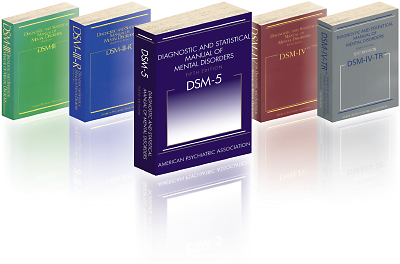Sessions Will Provide In-Depth Look at New DSM
Abstract
Presenters in the DSM-5 Track will give meeting attendees comprehensive information about the new manual and explain the implications of the most significant changes from DSM-IV to DSM-5.

The publication of the fifth edition of the Diagnostic and Statistical Manual of Mental Disorders (DSM-5)—an international effort more than a decade in the making—will undoubtedly be the defining event at APA’s 2013 annual meeting in San Francisco. To help attendees gain in-depth knowledge about and better understand the implications of the most significant alterations to the manual, a newly expanded DSM-5 Track will offer workshops and symposia on disorder-specific revisions (for example, to diagnostic criteria) as well as nondisorder changes (for example, the structure of disorder classification across the manual).
The DSM-5 Track at previous annual meetings generally concentrated on specific areas of diagnostic interest, and given that DSM-5 was still under development, the information was more speculative in nature. This year’s track, however, will feature 21 sessions led by prominent members of nearly all 13 DSM-5 work groups and the leadership of the DSM-5 revision process (including DSM-5 Task Force Chair David Kupfer, M.D., and Vice Chair Darrel Regier, M.D., M.P.H.), giving attendees a much broader and more definitive explication of content. Beyond merely summarizing the most notable revisions, speakers will articulate the underlying rationales of the changes and how DSM-5 can be implemented in clinical practice and in research settings.
These are among the highlights of the DSM-5 Track:
Reviews of the final, approved criteria from specific work groups, including, but not limited to, those on neurodevelopmental disorders, depressive disorders, bipolar and related disorders, and substance-related disorders. | |||||
Orientation to the development and testing of DSM-5’s revised Cultural Formulation Interview. | |||||
Demonstration of the ways in which DSM-5 criteria and the accompanying text were revised to more actively address cultural and age-related considerations. | |||||
Explanation of the alternative model of personality and personality disorder assessment, as provided in Section III. | |||||
Descriptions of the clinical utility and feasibility of patient-reported cross-cutting symptom measures and assessment of disability. | |||||
Also included in the track is an all-day master course to educate clinicians on how to apply DSM-5 in patient practice. Speakers from all of the DSM-5 work groups will be present to address their respective diagnostic areas, while further information will describe other areas, such as use of codes for nonmental disorder conditions of clinical importance, DSM-5’s revised approach to the DSM-IV multiaxial system, aspects of DSM-5 relevant to forensic issues and needs, the revised definition of what constitutes a mental disorder, and the reasoning behind the new chapter structure of the manual. ■
More information on DSM-5 is posted at http://psychiatry.org/dsm5. The Web site provides links for pre-ordering DSM-5 and related titles, as well as to the Psychiatric News series on changes between DSM-IV and DSM-5, video interviews with DSM-5 experts, and fact sheets on specific disorders.



